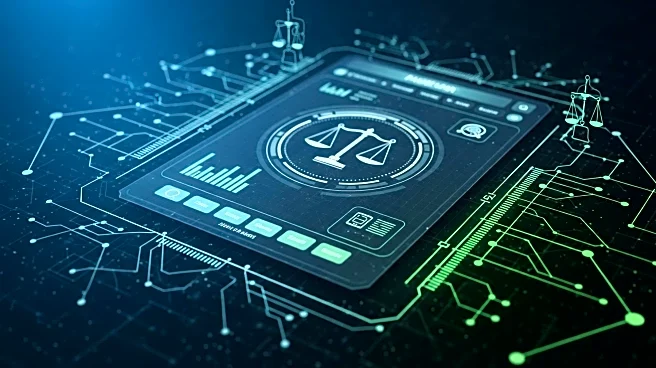What's Happening?
ProPlaintiff.ai has launched its Version 3 (V3) suite of AI-powered legal tools, specifically designed for personal injury law firms. This new release introduces several features aimed at streamlining legal processes, including an AI Paralegal for dynamic client interactions, an AI Agent Framework for customized firm-specific solutions, and a redesigned Demand Letter Generator to improve negotiation outcomes. The platform also offers Case Insights for deeper case analysis and a comprehensive Case Law Database with over 6.5 million documents. These tools are intended to assist attorneys in managing routine tasks such as client intake, evidence review, and communication, thereby allowing them to focus more on strategic aspects of their cases.
Why It's Important?
The introduction of ProPlaintiff V3 represents a significant advancement in legal technology, particularly for personal injury law firms. By automating routine tasks, the platform can potentially increase efficiency and accuracy in case preparation and client management. This could lead to improved client outcomes and reduced operational costs for law firms. The ability to customize AI agents to meet specific firm needs also offers a competitive edge, allowing firms to tailor their services more effectively. As legal practices increasingly adopt AI technologies, platforms like ProPlaintiff V3 could reshape the landscape of legal services, making them more accessible and efficient.
What's Next?
With the launch of ProPlaintiff V3, law firms may begin integrating these AI tools into their daily operations, potentially leading to widespread adoption across the industry. As firms become more familiar with the capabilities of agentic AI, there may be further developments in AI-driven legal services, including enhanced automation and decision-making processes. Stakeholders such as legal professionals and technology developers will likely monitor the impact of these tools on client satisfaction and case outcomes, which could influence future innovations in legal technology.
Beyond the Headlines
The deployment of AI in legal services raises important ethical and legal considerations, particularly regarding data privacy and the role of human judgment in legal decision-making. As AI tools become more autonomous, law firms must navigate the balance between efficiency and maintaining the integrity of legal processes. Additionally, the shift towards AI-driven services may require changes in legal education and training, as future attorneys will need to be proficient in using these technologies.








